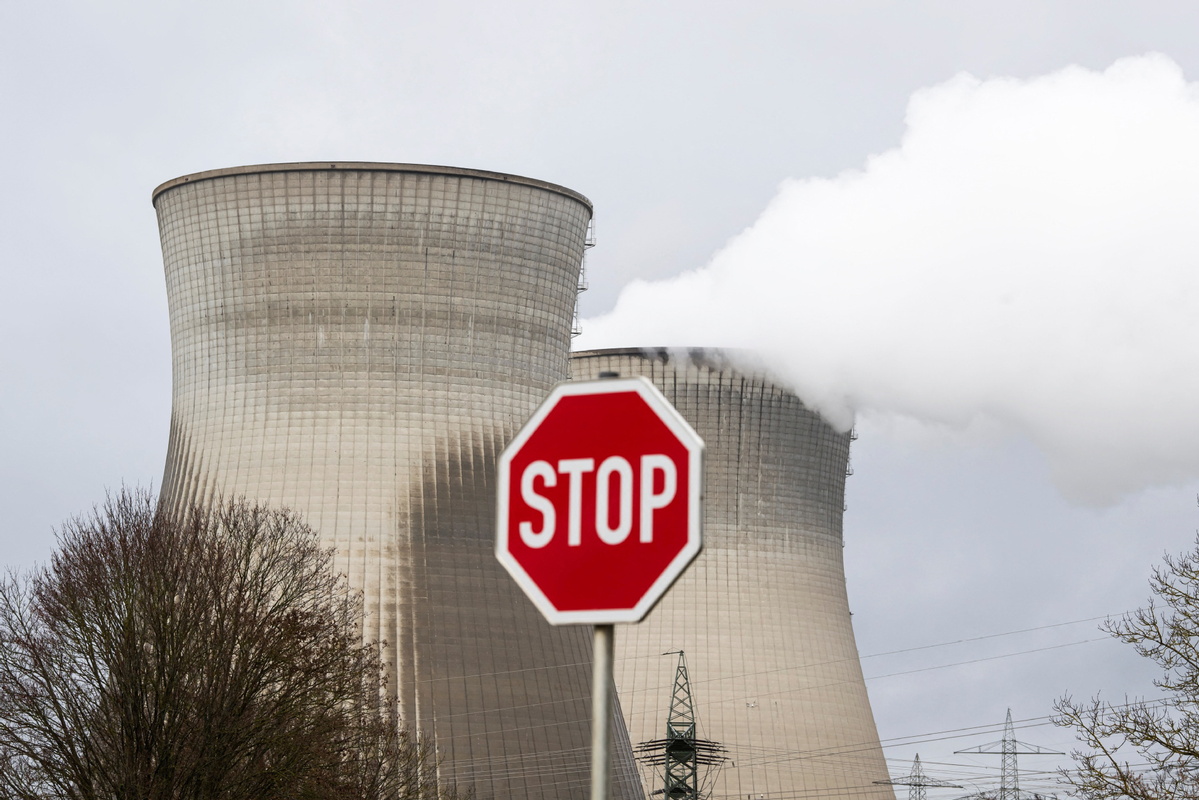Nuclear exit hastens green switch
By CHEN YINGQUN | China Daily | Updated: 2022-01-07 10:46

But, amid EU's energy crisis, top-up with fossil fuels seen likely in Germany
Germany's actions in pressing ahead with the closure of nuclear power plants in the midst of an energy crisis gripping Europe may lead to a temporary rise in the use of fossil fuels but will ultimately hasten the country's shift to renewable energy, analysts said.
Germany shut three nuclear reactors-Brokdorf, Grohnde, and Gundremmingen C-on Dec 31, after almost four decades in operation. Together, they had an output capacity of about 4.25 gigawatts. The last of the country's nuclear plants-Isar 2, Emsland and Neckarwestheim II-will be switched off by the end of this year.
Zhao Yongsheng, a professor at the Academy of China Open Economy Studies at the University of International Business and Economics in Beijing, said that with energy prices in the European Union reaching record highs over the past year, Germany's move to stick with the plant shutdown is eye-catching.
"But this move, which was decided a long time ago, is more a symbolic issue at heart," he said. "It might affect the energy supply of Germany, but not by that much," Zhao said.
Germany's nuclear phaseout began in the wake of the meltdown of Japan's Fukushima nuclear reactor in 2011, when an earthquake and tsunami destroyed the coastal plant in the world's worst nuclear disaster since Chernobyl 25 years earlier.
According to the Fraunhofer Institute, renewable energy sources provided around 46 percent of power generation in Germany in 2021, with nuclear power contributing about 13 percent. Germany's government aims to generate 80 percent of electricity from renewable sources by 2030.
Zhao said that nuclear accounts for only a small portion of the country's power generation, so it won't be difficult for Germany to find replacements for it, mostly likely with fossil fuels.
The academic noted that Germans are mostly wary over the risks posed by nuclear reactors, and the Greens, which are now part of the German coalition government, have long tapped this sentiment in their focus on climate issues.
"Thus, the nuclear phaseout fits with the public's expectations and is in the interest of the government."
The German government has said that the phased shutdown of the nuclear plants-together with the phasing out of coal by the end of the decade-won't affect the country's energy security or its goal of making Europe's biggest economy climate neutral by 2045.
Long-term considerations
Zhao Junjie, a researcher in European studies at the Chinese Academy of Social Sciences, said that Germany's nuclear phaseout is not a short-term, irrational choice, but one that has arisen from long-term considerations and "reflects the common consensus of the parties".
He said that the Fukushima and Chernobyl nuclear disasters have left psychological scars in the psyche of many Germans. The shutdown of the nuclear reactors, even in the midst of a protracted surge in European energy prices, might also indicate that Germany seeks to serve as an example to its neighbors.
The price of natural gas, in particular, has soared over the past year, with supply shortages exacerbated by a colder winter.
Zhao said that energy prices in Germany are higher than in many other European countries, and the margin is likely to grow. The country will have to quickly ease the shortage in energy supplies by increasing the use of fossil fuels, including through imports.
"But in the long run, Germany will definitely quicken its step of developing renewable energies and increasing energy efficiency," he said.
However, France is moving in the opposite direction under a plan to modernize its existing reactors and build new ones. Moreover, a draft plan of the European Commission said that both nuclear energy and natural gas can, under certain conditions, be considered sustainable for investment purposes.
German government spokesman Steffen Hebestreit said on Monday that Germany considers nuclear energy dangerous and "expressly rejects" the European Union proposals.
Agencies contributed to this story.
























